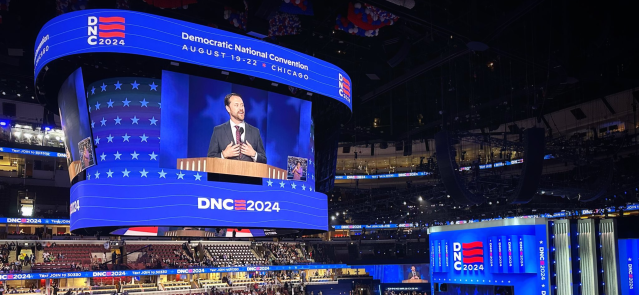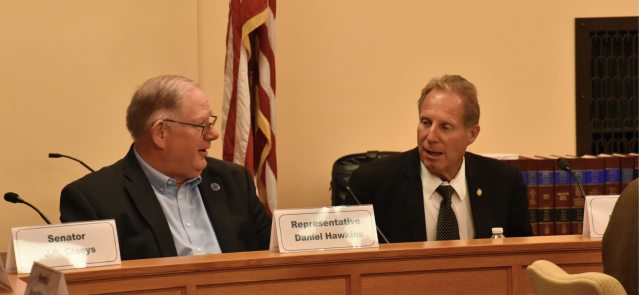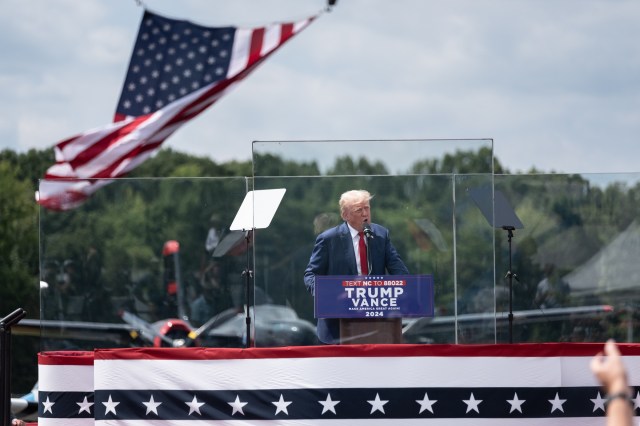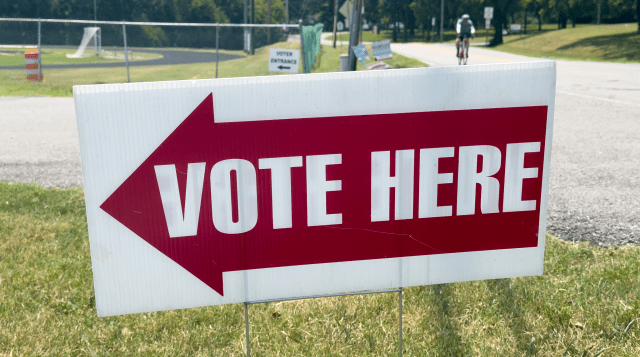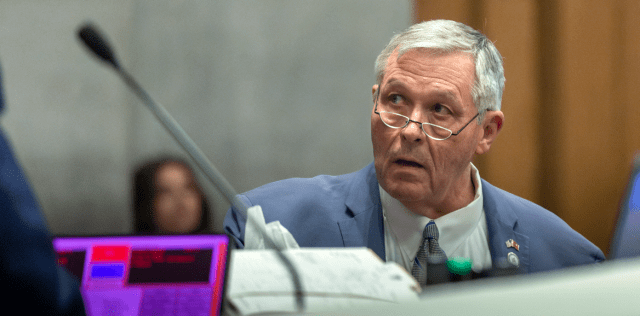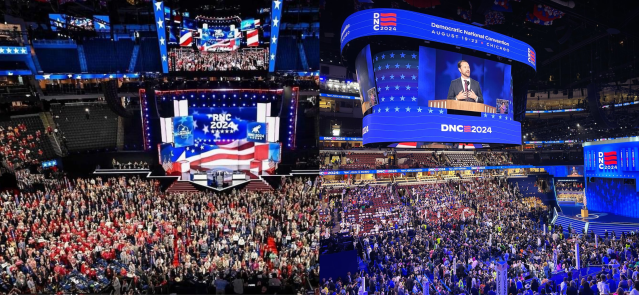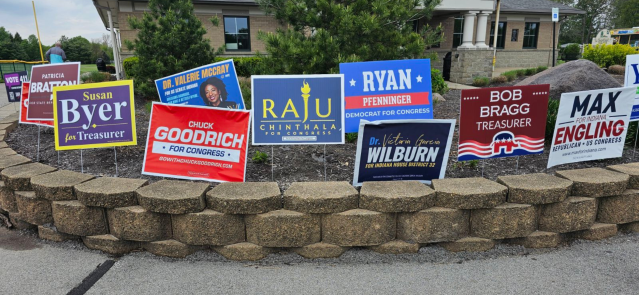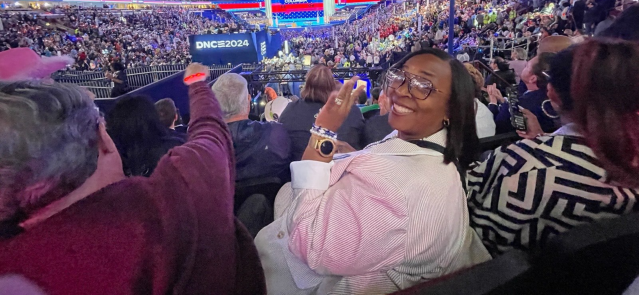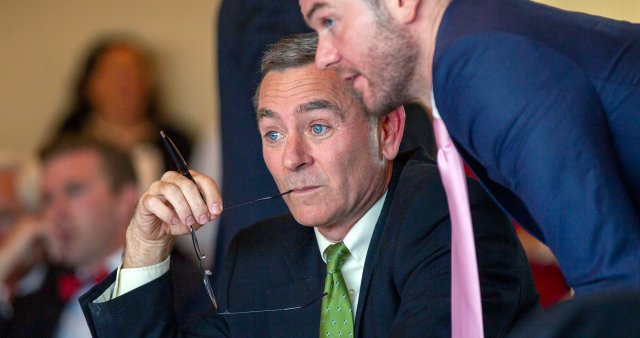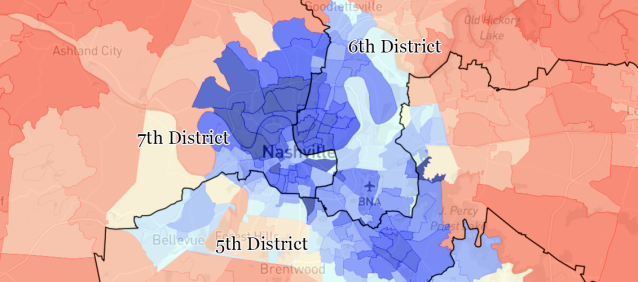CHICAGO — Until last November, Indiana was home to just one Black female mayor, Gary’s Karen Freeman-Wilson, who served two terms before she was defeated in 2019.
Last November, the so-called glass ceiling began cracking and falling away in earnest across Indiana. Democratic Vanderburgh County Councilwoman Stephanie Terry won the open seat in Evansville, the state’s third-largest city, while Democratic Councilwoman Angie Nelson Deuitch defeated Republican Michigan City Mayor Duane Parry with 60% of the vote the same day. In Lawrence, Councilwoman Deb Whitfield won the Democratic primary and then beat Republican Deputy Mayor David Hofmann.
Last April, following the death of Fort Wayne Mayor Tom Henry, Councilwoman Sharon Tucker won the Democratic caucus to become the first non-white woman to serve in Indiana’s second-largest city.
These four mayors have, thus, opened a new era in Hoosier politics.
Vice President Kamala Harris will take the Democratic National Convention stage tonight to accept the presidential nomination. She will become only the second woman to win a major party nomination in American history. The first, Hillary Clinton, told the DNC on Monday: “Together, we’ve put a lot of cracks in the highest, hardest glass ceiling and tonight so close to breaking through once and for all.”
I asked Mayors Tucker and Nelson Deuitch this question at Indiana delegation breakfasts this week: If you were to have a conversation with Vice President Harris about what you’ve just been through and what is in front of her, what would you tell her?
“I would tell VP Harris the same thing she told me a month ago,” Mayor Tucker responded. “She grabbed my hands, imploring me to surround myself with people who believe in her and who want to make sure her vision and mission for these great United States is carried out.”
Mayor Nelson Deuitch added, “I’ve done the work already. I have the experience. I did two different terms on the council, but more than that, I was an engineer; I have a masters in public affairs, but people still questioned.”
Why is that?
“I went into engineering school when there were no women engineers,” the Michigan City mayor said. “It takes time. Companies change; governments change. I just think it’s slower in government.”
Nelson Deuitch was president of the Michigan City Council when she ran in 2023. She operates I&D Squared, a consulting firm focusing on inclusion and diversity. Her leadership certifications, management experience and all-around tenacity allow her to reach, understand and meet people where they are without judgment.
Tucker’s community engagement has also been extensive. She’s a member of the Zeta Phi Beta Sorority, Advancing Voices of Women and the NAACP. Tucker has also volunteered on the board of directors for the Allen County Public Library, Alliance Health Clinic and the Summit City Entrepreneur and Enterprise District. Before she was elected to the Fort Wayne Council, voters had sent her to the Allen County Council.
At March’s Democratic caucus, Tucker’s fiery speech won the room.
“I’m the only candidate who stands before you who has all those boxes checked on her résumé,” Tucker said. “You see, as 6th District representative, I have had the pleasure of sitting at the table with developers and investors and telling them how great our city is and encouraging them to make investments. I fully understand government.”
The expectation is that tonight Harris will be in an energetic mode while offering a sharp contrast to Republican nominee Donald J. Trump.
After she won the caucus on the second ballot, defeating Indiana House Minority Leader Phil GiaQuinta, a jubilant Tucker said, “Today you had the opportunity to make history by electing the first 5-foot-3 mayor. To be in a place where they’re fed, loved and cared for, that’s my vision for our community.”
She added, “As your mayor, I will create a new council where we can focus on mental health, because one of the things I know for sure is that individuals who are unhoused, many of them suffer from mental conditions. Instead of incarcerating them, let’s give them the care that they need.”
Mayor Tucker had this advice for Vice President Harris: “Enjoy the journey as she travels on. Being the first carries a lot of weight, but it also matters in all of the success of her activity and the things that she does day to day throughout the process.”
I asked Tucker another question: What has it been like to break that glass ceiling in Fort Wayne, where you are not only the first female but also the first person of color to become mayor?
“It’s been both exciting and stressful,” Tucker replied. “I know there are a lot of people who are looking at me to see how I will respond and react to multiple things, where most of the time when there’s a man in charge, people can automatically assume the response. Coming from a female — an African American female — people are wondering what the responses will be until they get a chance to get used to me and how I serve.
“And so Vice President Kamala Harris as president will have the same people looking at her to see what her responses and reactions will be,” Tucker continued. “But at the end of the day, she is a leader like I am, so I really believe she will lead us with grace and dignity.”
Mayor Nelson Deuitch added, “I’ve run departments, I’ve managed multiple units across multiple states, and yet it’s still one of those things where you have to prove yourself, even though I’ve already proved it.
“All I can say is, as I watch the race, like last night when people lie or people try to discredit, you have to step up and support and tell the truth,” she continued. “You’ve got to make sure your team is ready to deal with those things, because as a Black woman in a nontraditional role there’s always a question.”
Has the Michigan City Council and her constituency been open to her leadership?
“Yes,” Mayor Nelson Deuitch responded. “Our council is one of the most diverse councils with all age groups. They understand I have an open door. I make sure they understand their roles and responsibilities and how to communicate.”
Mayor Terry told Evansville residents at her first State of the City address last winter: “One hundred days ago, we launched a new era in Evansville. We broke two glass ceilings, swearing in the first Black mayor and the first female mayor in the city’s 212-year history. The energy, the enthusiasm, the hope that I felt that day have carried us through these first 100 days as we’ve finished assembling our team and gone right to work moving Evansville forward.”
She added, “I knew I was going to be held to a higher standard, and I knew you were going to be watching. And I told you I was ready. I told you I was going to make sure Evansville is a city that works for everyone, and I knew you were going to hold me accountable for that. I knew I was going to hold myself accountable, too.”
Brian A. Howey is senior writer and columnist for Howey Politics Indiana/State Affairs. Find Howey on Facebook and X @hwypol.
